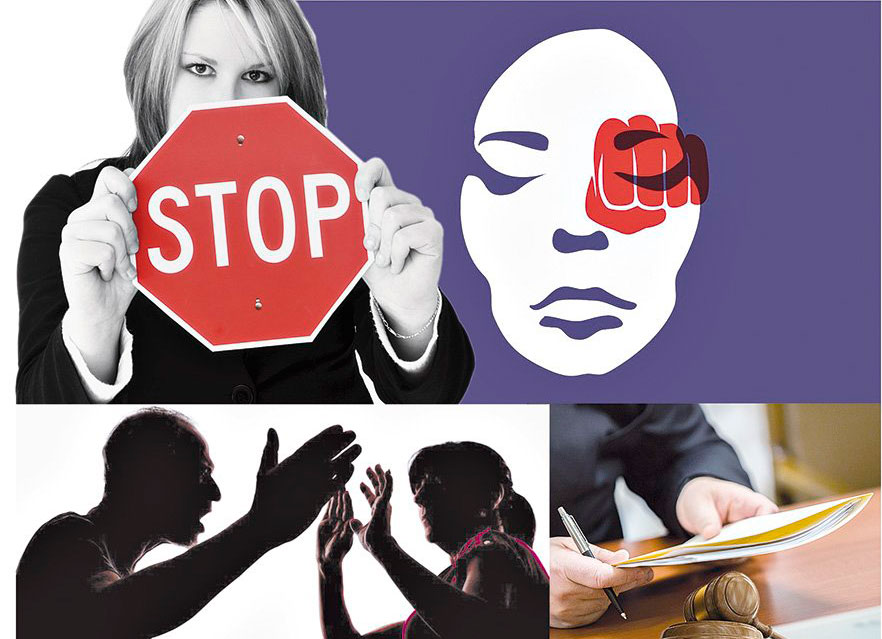Violence, sexism, employment discrimination: women’s rights groups send report to UN
The “Her Rights” center has prepared, in a coalition with the public association “Radzislava”, a report on the state of gender equality and women’s rights in Belarus in the framework of the Universal Periodic Review (UPR). The survey is an alternative to the government’s report, both of which will be heard in May 2020.
The alternative report focuses on the most urgent issues of concern to the country’s civil society, including domestic violence, sexism and gender stereotypes, labor discrimination, and the feminization of poverty.
Domestic violence
Belarus still lacks a specialized law on preventing domestic violence (an attempt was made in 2017, but the bill was laid aside after negative reactions, including from President Lukashenka). As a result, the existing legislation does not provide effective protection mechanisms for the victims. The Interior Ministry, instead, suggests conversations, official warnings, and restraining orders, which, in their view, are expected to pacify the assaulter. Moreover, in order to receive a restraining order, the victim should go through all the previous stages, an extremely time-consuming and burdensome procedure.
None of the existing shelters for women (there are only 5 of them in Belarus) is government-funded. They are funded by either the third sector or the church. The Ministry of Social Security and Labor does have several so-called “crisis rooms”, which can accommodate victims of domestic violence, but these rooms are not specifically designed for them. The target audience of these centers are victims of human trafficking, persons who have suffered from acts of terrorism, catastrophes, natural disasters, as well as orphans and children left without parental care.
In addition, the Ministry of Internal Affairs does not keep statistics on those murdered or injured by domestic violence. Non-governmental organizations document such cases when they receive calls on their hotline. About 70% of the complaints received by Her Rights deal with violations of rights in the family and domestic sphere. Of these, more than 67% relate to the problem of domestic violence.
Sexism and gender stereotypes
Belarus is dominated by gender stereotypes and patriarchal views on the role and responsibilities of women and men in society and the family. These clichés are often reinforced by high-ranking government officials. “Women’s mission is beautifying the world” (Aliaksandr Lukashenka) and “Football is not a female sport. The duty of a woman is having a baby” (Yury Viarheichyk, former Secretary General of the Belarusian Football Federation) are just a few examples of these statements.
Another problem is sexist advertising (by both public and private businesses). Meanwhile, the national legislation does mention the notions of “sexism” as “discrimination in advertising”. Worse, Belarus does not have a framework law on discrimination, says Pavel Sapelka, an expert of the Human Rights Center “Viasna”.
“For example, there is a law on extremism, which describes what extremism is, and introduces responsibility for it. But there is no such law for discrimination. Moreover, the government says we do not need it because the necessary guarantees are enshrined in other legislative acts. For example, the Labor Code prohibits discrimination based on sex, race, and so on,” Sapelka says.
Employment discrimination
Despite the above, labor legislation does not include mechanisms to address specific problems. For example, “during interviews for a job, women are often asked about their marital status and the plans to have children. Such issues are widespread and are treated by employers as a norm,” the expert said.
The already discriminative contract-based employment system puts women in a vulnerable position. Women can be considered as unfavorable employees, as the law specifies a number of guarantees, which are not an obligation for the employer and are not profitable from the economic point of view. The most unprofitable aspects are pregnancy and childcare leave. But while the first is purely biological, the other is an exclusively social component. The law allows fathers to have paid paternity leave, but today only 1% of fathers take the opportunity. The reasons for this are gender stereotypes. There is also the financial factor, as men tend to occupy high-paying jobs. Indeed, the gender pay gap is quite large. Despite the fact that the difference between men and women decreased from 33% in 2015 to 24% in 2019, it still represents a significant split in the society and prevents the access of women to equal pay for equal work.
But, perhaps, the most important question of discrimination against women in employment is the existence of prohibited jobs, which effectively outlaws 181 professions. Preventing women from occupying the blacklisted jobs is not based on science, says the alternative report.
Feminization of poverty
The report stresses that employers are reluctant to hire retired women. At the same time, even if the women of retirement age do not want to work, the new pension reform makes them search for employment. Otherwise, they may be entitled to lower pensions because of reduced working life.
“The law prohibits to fire employees 2 years before retirement, so there were cases when employers force women to retire a few months before (i.e. at 58) to be able to hire younger employees,” reads the report.
Besides, mothers with three or more children are also at risk because of the news rules related to calculating years of employment. As a result, a mother of four will only have 75% of her maternity leave included in the period of pensionable service.


















